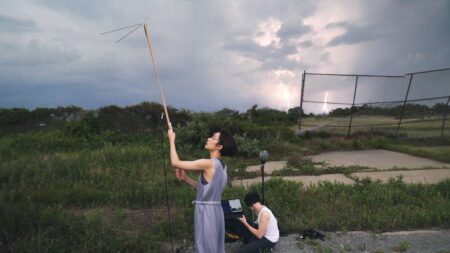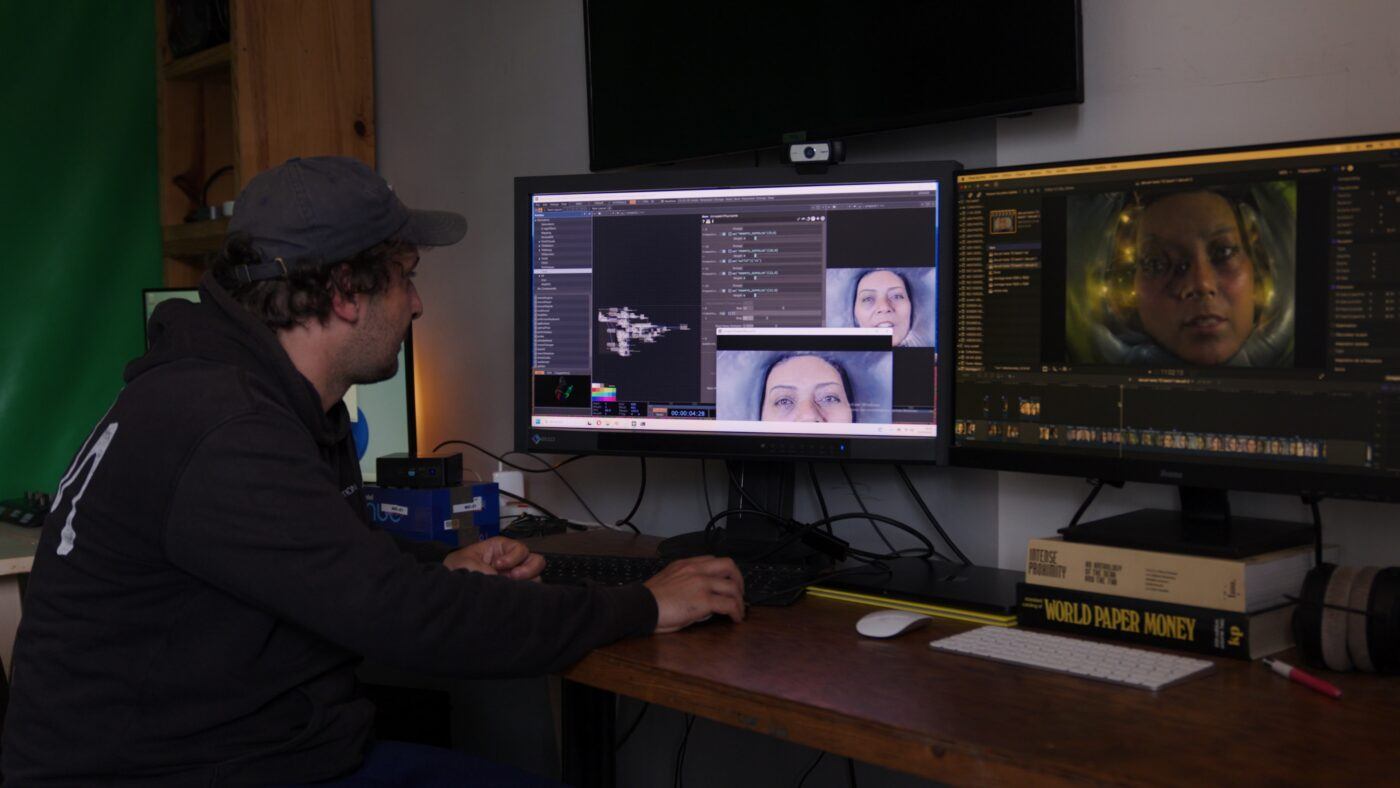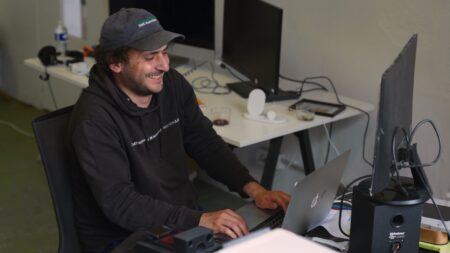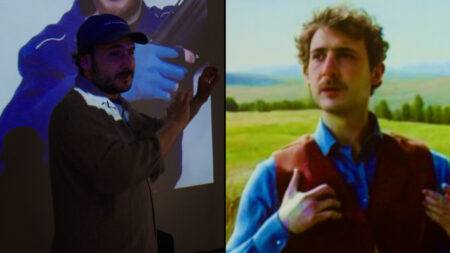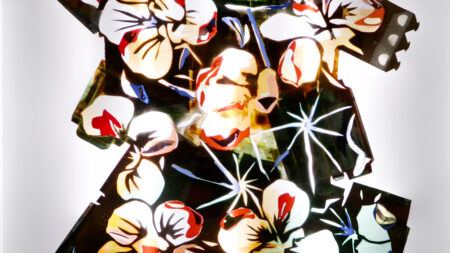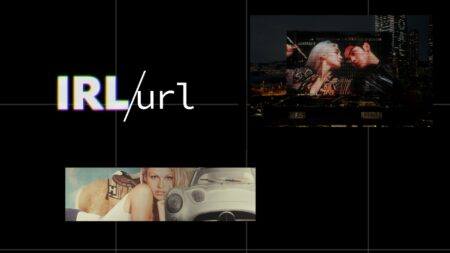Neïl Beloufa

Neïl Beloufa was born in 1985 in Paris, France, where he currently lives and works. He studied at École Nationale Supérieure des Beaux-Arts, École Nationale Supérieure des Arts Décoratifs, California Institute of the Arts, Cooper Union, and Le Fresnoy National Contemporary Arts Studio. Beloufa’s practice playfully interrogates and deconstructs geopolitical, economic, representational, and technological systems that organize contemporary life. Across a variety of media, including video, sculpture, artificial intelligence, and installation, the artist investigates how contemporary global power structures operate, using his role as an artist to offer alternative models of production, collaboration, and governance.
In many of his works, Beloufa examines the confusing and complex media environment of the present, considering how information gets lost, misunderstood, and reinterpreted. In 2014, Beloufa wrote and recorded the mockumentary series Screen Talk, which follows the events of a fictional pandemic. The five-part series follows scientists and doctors as they search for a cure; however, the true focus of the episodes is the interpersonal relationships between the various characters as their communication and relationships break down in fantastical and absurd ways over the course of the series. In 2020, the artist embedded the series on an interactive website accessible to the public, but only by completing CAPTCHA tests, quizzes, and closing out of pop-up windows, at which point the videos are presented out of order. In his interactive installation Global Agreement (2018), Beloufa creates unique viewing apparatuses for video that place viewers face-to-face with a soldier as they describe their profession, recalling memories from their time at war. In these videos, the subjects sit in their bedrooms, on lawns, and in hammocks as they talk casually about their experiences. In both Screen Talk and Global Agreement, Beloufa considers the ways in which information transmission influences our understanding of reality, calling attention to the ways in which the truth can be distorted, manipulated, or obfuscated.
Beloufa uses the creative freedom of artistic practice to experiment and create new ways of working, living, and making. In works such as Big Flowers C (2019), Medium Cars K (2019), and Medium Cars H (2019), the artist recycles cardboard boxes from his studio to create collaged installations attached with power outlets meant to charge phones at art fairs. “Most of the work that is produced here has a stupid function that is added on top,” the artist says. “It creates a profane relationship to the work, where it lowers its value through functionality.” In 2021, Beloufa co-founded Ebb.Global, a creative studio that works collaboratively with artists, developers, and researchers to build digital infrastructures. In creating his own corporation, the artist works to learn how such entities function and innovate within that system to create a new, more equitable way of doing business. At Ebb.Global, Beloufa employs a decentralized approach to art-making that moves away from an individualistic artistic practice and focuses instead on collaboration and the quality of the work. “We cannot complain about something if we don’t try to propose another way,” he says. Using technology, Beloufa offers solutions and alternatives to current modes of production and collaboration. Across his multi-media practice, the artist participates and implicates himself and his viewers in the investigation, destruction, and reinterpretation of the global systems that govern contemporary life.
Videos 5
-
Neïl Beloufa
“We cannot complain about something if we don’t try to propose another way.”
Neïl Beloufa
